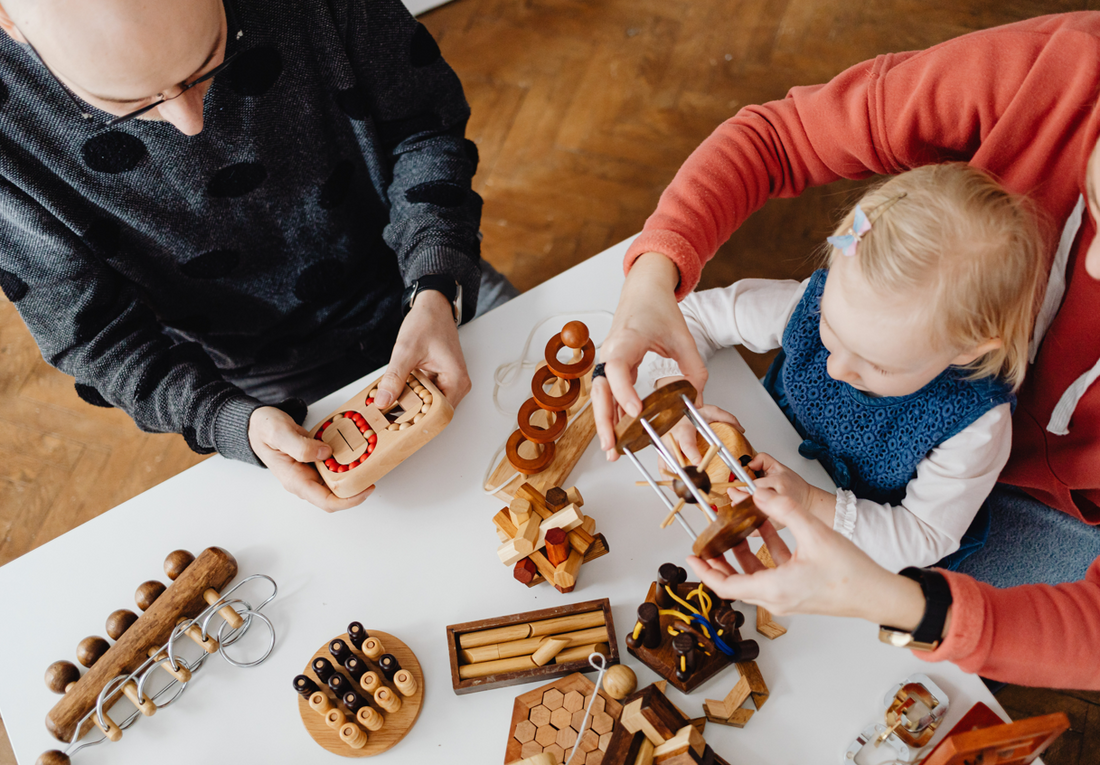Bridging the Gap: How Educational Toys Can Foster Parent Engagement and Communication

Parental engagement and effective communication play pivotal roles in a child's educational journey. When parents actively participate in their child's learning process, they become valuable partners for educators, and students are more likely to thrive academically and emotionally. However, in recent times, there has been a concerning lack of parent engagement and communication, leading to potential gaps in a child's development. In this blog, we will explore the reasons behind this issue and discuss how educational toys can serve as a powerful tool to bridge the gap and foster meaningful connections between parents and their children.
The Challenge of Parent Engagement and Communication
Numerous factors contribute to the decline in parent engagement and communication. Busy work schedules, socioeconomic pressures, and other life demands often leave parents with limited time and energy to actively participate in their child's education. Furthermore, a lack of understanding of the importance of parental involvement in academics and a lack of access to proper resources can hinder meaningful engagement.
As children grow, they may also become less forthcoming about their experiences at school, making it challenging for parents to grasp their educational needs and progress. This communication gap can have a profound impact on a child's overall development, leading to missed opportunities for growth and learning.
The Power of Educational Toys
Educational toys have long been recognized for their ability to support a child's learning and cognitive development. They stimulate curiosity, creativity, and critical thinking skills while making learning an enjoyable experience. When it comes to bridging the gap between parents and children in the realm of education, these toys can prove to be invaluable.
-
Facilitating Interactive Learning: Educational toys encourage children and parents to engage in play together. By doing so, parents can actively participate in their child's learning journey while building stronger bonds and connections. Playing with educational toys also presents opportunities for parents to identify their child's strengths, weaknesses, and interests, leading to more informed educational decisions.
-
Creating Conversational Avenues: Educational toys often provoke curiosity and inquisitiveness in children. When parents take an interest in their child's playtime activities, it opens avenues for conversations about various subjects, including what the child is learning at school. This communication can be a stepping stone to better understand the child's needs and academic progress.
-
Personalizing Learning: Many educational toys are designed to cater to individual learning styles and preferences. Parents can choose toys that align with their child's interests and academic areas that require improvement. By doing so, parents can tailor their child's learning experiences outside of school, complementing formal education.
-
Building Confidence and Self-Esteem: When parents actively engage in educational play with their children, it sends a powerful message of support and encouragement. Children feel valued and appreciated, which boosts their confidence and self-esteem. This positive reinforcement can lead to greater enthusiasm for learning and a willingness to share their educational experiences with their parents.
-
Breaking Down Barriers: Educational toys can be especially beneficial for parents who feel overwhelmed or unsure about how to approach their child's education. By providing a fun and stress-free way to connect with their children, these toys can break down communication barriers and create a more relaxed atmosphere for learning.
Parent engagement and effective communication are cornerstones of a child's educational success. However, due to various factors, these crucial elements are often lacking in today's fast-paced world. Educational toys present a powerful solution to bridge this gap, offering parents a chance to actively participate in their child's learning journey while building stronger connections.
As we move forward, it is essential to promote the importance of parental involvement and provide parents with resources and knowledge about the benefits of educational toys. By nurturing these meaningful interactions, we can pave the way for a brighter, more fulfilling educational experience for our children. Ultimately, the harmonious collaboration between parents, children, and educators will foster a love for learning and set the stage for lifelong academic success.


